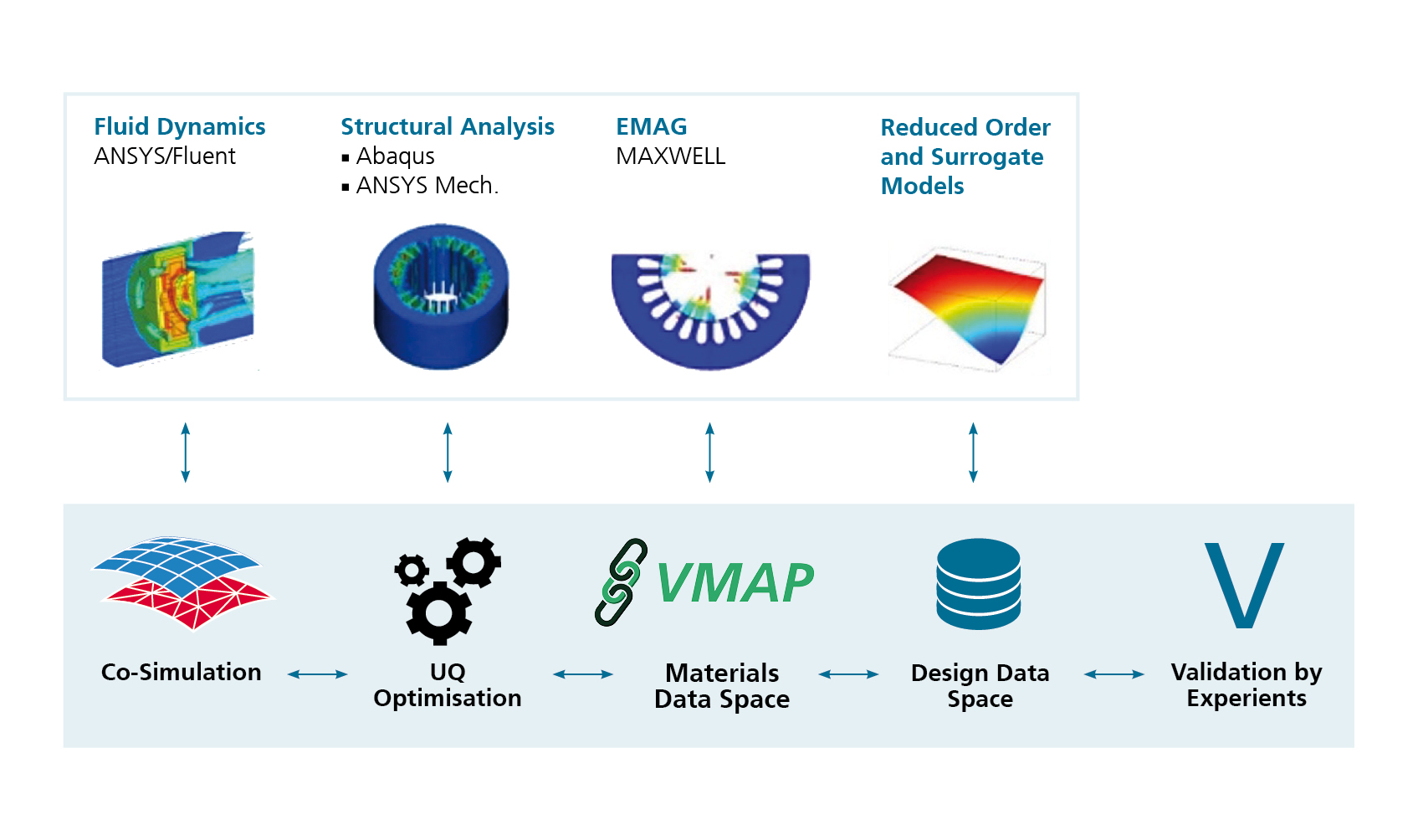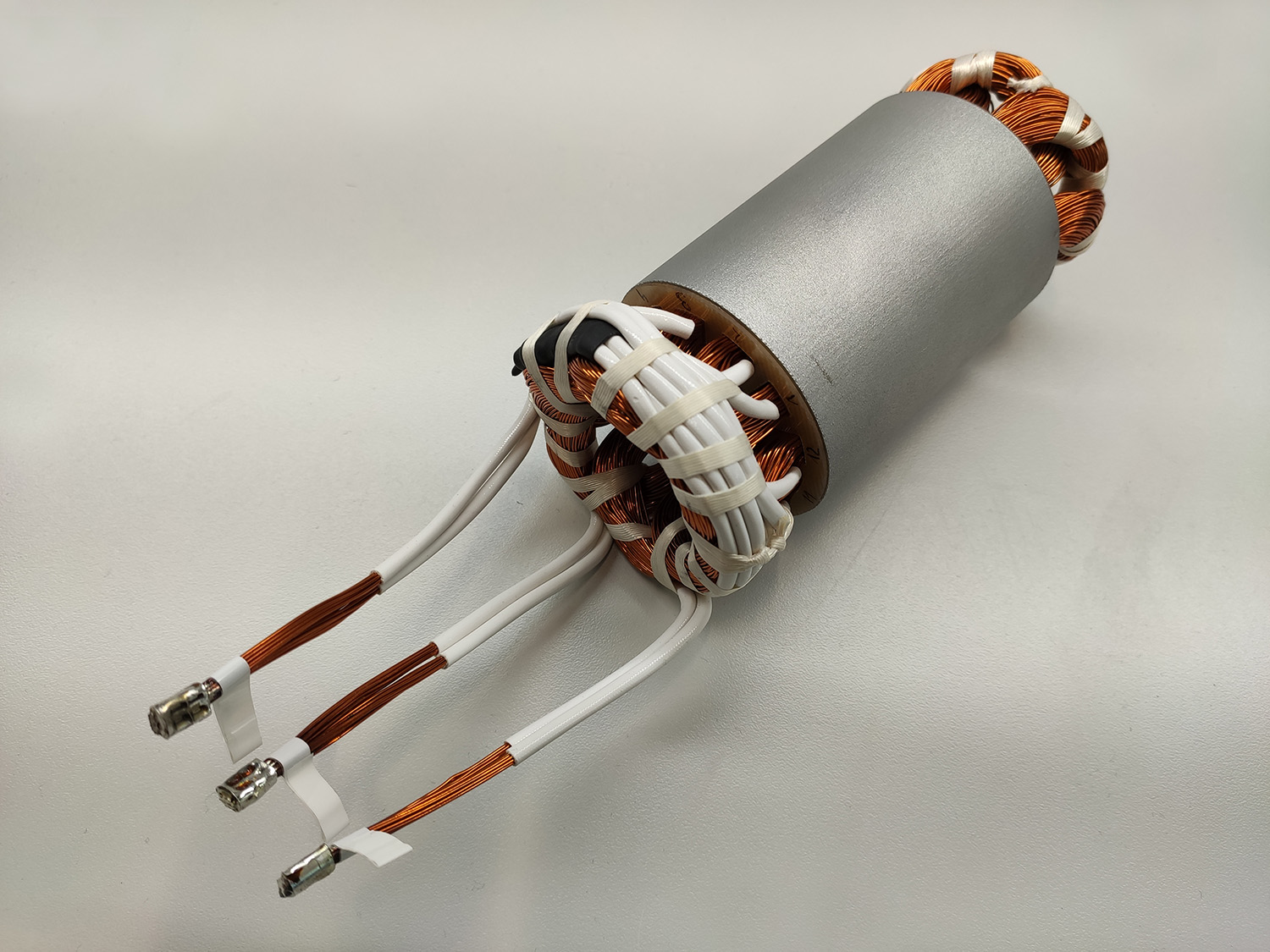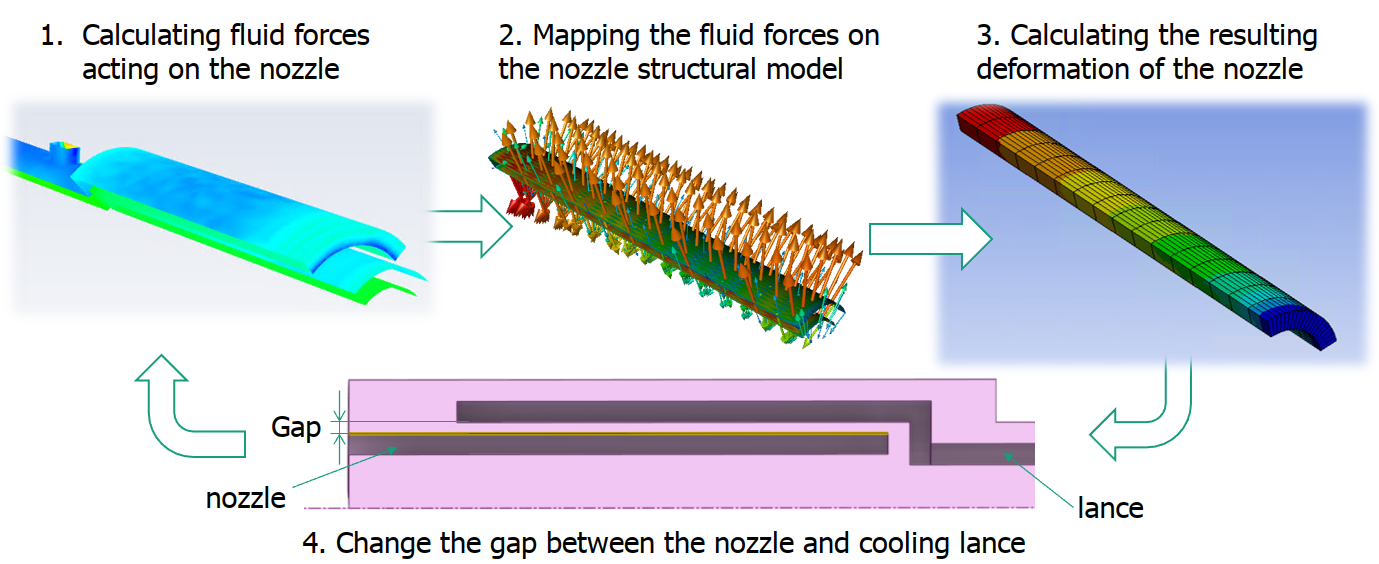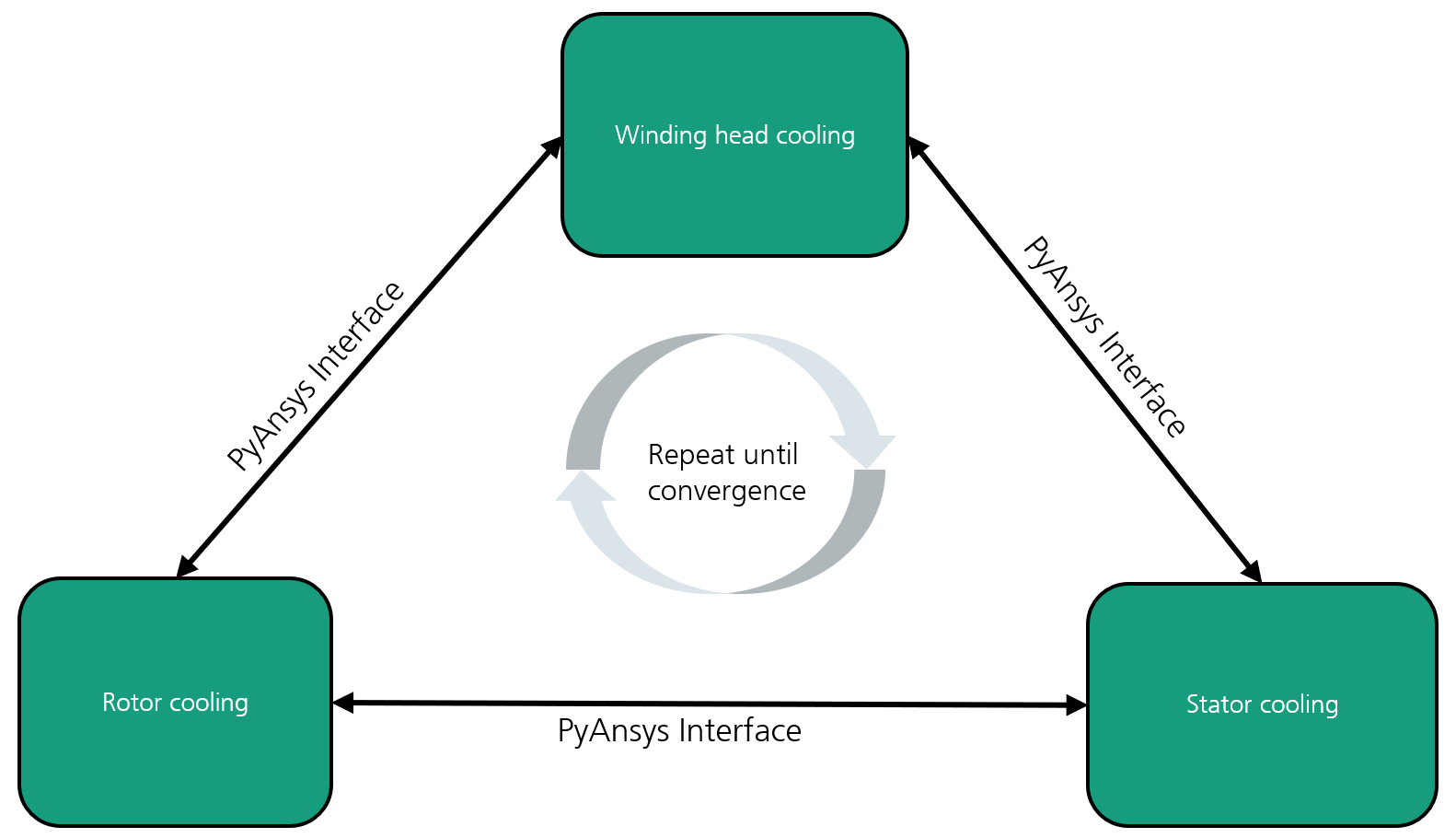HABICHT
High-speed drive for fuel cell air compressors in commercial vehicle and aviation applications.
Electrification of Powertrains
The transport sector is undergoing a transformation towards climate-friendly powertrains with significantly reduced CO2 emissions. The electrification of powertrains remains a major challenge for trucks, buses, trains, ships, and aircraft. These applications cannot be realized in the future with batteries because of the energy requirements. An extremely promising energy supplier for these applications is the fuel cell, which supplies electrical energy from stored hydrogen and ambient air. Electrically driven turbo compressors with high speeds are required to supply ambient air. The electric drives required for the air compressors are very demanding in terms of thermal and mechanical properties. The thermal and mechanical design shows great potential to increase power density and reliability with new material technologies. The most significant challenges arise in terms of reliability and lightweight construction. The power-to-weight ratios necessary for the aviation sector cannot be achieved with the conventional electric motor concepts from the automotive sector.
High-Speed Motor for a Fuel Cell Compressor
The project aims to design and develop a high-speed motor for a fuel cell compressor to enable innovation in the utility vehicle and aviation domain. The high-speed motor should achieve a power density of 30 kW/kg by using innovative materials to cool the stator and rotor directly. The rotor design will use a new manufacturing process to glue and pot the magnet to be suitable for high-speed operation.
The design process relies on a simulation framework. This framework combines multiphysics simulations to consider all aspects of the early design stage's thermal, mechanical, and electromagnetic interactions. Specific machine learning methods combined with surrogate modeling and uncertainty quantification are employed to assist in some optimization questions and decisions during the design phase. A dedicated data space connects engineering knowledge, data results from the virtual design, and experimental data gained from testing and measurement.
Multiphysics Modelling and Smart Design Environment
The project is structured in four milestones:
- Definition of a specification sheet
- Conceptual definition of motor design and cooling management
- Design of stator and rotor and cooling management
- Operation of PMSM and total test bench
Fraunhofer SCAI contributes to the simulation framework by using its expertise in interface solutions for coupled simulation and manufacturing processes. Our MpCCI interface for mapping, in particular, enhances the design framework.
Fraunhofer SCAI integrates uncertainty quantification methods in the decision-making process to attach a level of confidence to the simulation results. A digital twin of the thermal behavior of the PMSM is built to analyze the developed cooling management.

Project Results
The project results will amend the hydrogen expertise within Fraunhofer by establishing a competence center for high-speed electric motors. The Fraunhofer research consortium will provide a wide range of services for customers through their comprehensive and inter-disciplinary perspective, which are bundled into four business units:
- Integrated Systems and Device
- Technology Structural Durability and System
- Reliability of Manufacturing Technology and Advanced Materials
- Algorithms and Scientific Computing
This project will demonstrate Fraunhofer SCAI’s capabilities to establish a dedicated data space enhanced by modern machine learning methods to assist the different design steps in decision-making, modeling, and validation of results. A set of core competencies will be available for future clients:
- With modern machine-learning technologies, we can shape the future of decision-making processes driven by data and knowledge.
- We can use multiphysics modeling to analyze the system and find potential improvements with innovative materials and manufacturing processes.
Simulation workflow with CAE tools
The simulation chain was built from three parts: winding head cooling, rotor cooling, and stator cooling. These individual domains were connected via common boundary conditions and executed one after another by using the output values of one domain as input values for the next one. The simulations/surrogate models were repeatedly analyzed until the convergence of the maximum rotor temperature.
Publications
Fraunhofer SCAI published an extended abstract called "Surrogate Modeling for Thermal Analysis of a High-Speed Electric Motor using Gaussian Processes" at NAFEMS Artificial Intelligences und Machine Learning in der CAE-basierten Simulation 2023, which can be accessed here.
The focus of this work is the creation and combination of different surrogate models of the individual physical domains of the electric machine.
Additionally, Fraunhofer SCAI published an extended abstract called "Thermal Design of a Permanent Magnet Synchronous Motor for a High-Speed Drive for Fuel Cell Air Compressors" at NAFEMS Multiphysics Conference 2023, which can be accessed here.
This work focuses on creating a digital twin of the electric machine, built from individual surrogate models of different physical domains.
Other publications related to the project HABICHT are “High-Performance GaN Inverter for High-Speed Application” published at PCIM Europe, “Entwicklung eines Hochdrehzahlantriebs für Brennstoffzellen-Luftverdichter in Nutzfahrzeug- und Luftfahrt-Anwendungen" published at Symposium Elektromagnetismus and “Development of a high-speed electric motor with direct rotor cooling for fuel-cell compressors” published at E-MOTIVE by FVA.
Fraunhofer Research Consortium
- Institute for Integrated Systems and Device Technology IISB
- Institute for Structural Durability and System Reliability LBF
- Institute for Manufacturing Technology and Advanced Materials IFAM
- Institute for Algorithms and Scientific Computing SCAI
Advisors Board
- Various manufacturers from aerospace and e-mobility domain
- Hochschule Heilbronn, Institut für Digitalisierung und elektrische Antriebe (IDA)
Funding Information
Project duration: 02/2021 until 04/2024
The project is funded by the program PREPARE of the Fraunhofer-Gesellschaft.


